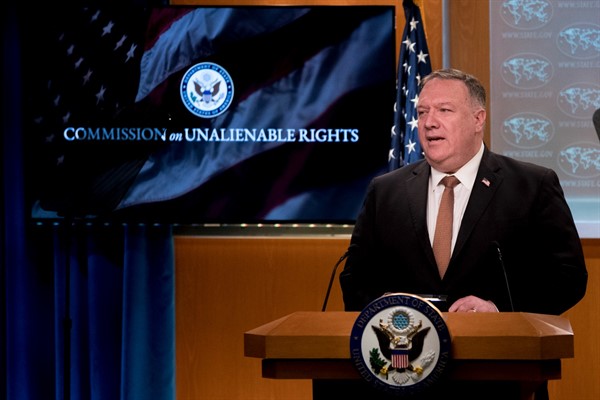How can you square the doctrine of “America First” with the promotion of human rights? It’s a question that has bedeviled the Trump administration since it first took office. Secretary of State Mike Pompeo provided his own answer on July 16, when he unveiled the much-anticipated draft report of the U.S. Commission on Unalienable Rights.
In a strident and tendentious speech at the National Constitution Center in Philadelphia, Pompeo attacked the “proliferation” of “new rights” claims to cover an ever-expanding set of groups and issues, saying it was time to get back to basics. Henceforth, U.S. human rights policy should be grounded in the limited conception of rights outlined in America’s founding documents. Pompeo’s misguided effort to nationalize U.S. human rights policy, if successful, would undermine the cause of freedom, equality and justice both at home and abroad.
In Pompeo’s telling, the fundamental rights enunciated in the Declaration of Independence, which he characterized as “the most important statement of human rights ever written,” are under assault from within and without. He decried the societal upheavals that have convulsed America in the wake of George Floyd’s murder, as well as the New York Times’ 1619 Project, which places slavery at the heart of the nation’s founding, as an attack on the “very core of what it means to be an American, indeed the American way of life itself.” Equally pernicious are attempts by the global left to enunciate an ever-expanding set of rights and to embed them in multilateral bodies and treaties. “Many are worth defending, in light of our founding,” Pompeo conceded, before adding, “Others aren’t.”

